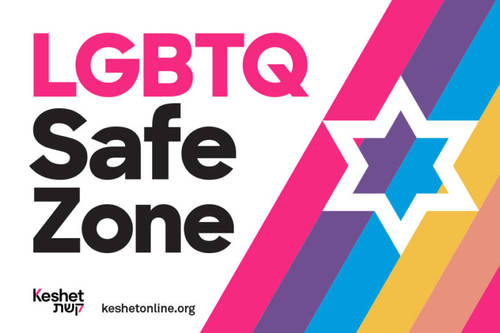6 Years as a Rabbi: What I’ve Learned
06/19/2017 12:33:13 PM
| Author | |
| Date Added | |
| Automatically create summary | |
| Summary |
A few weeks ago, I completed my sixth year as a rabbi. As I look ahead to the next stage of my professional life, I find myself reflecting on the wisdom I’ve gained on my journey so far. Much like I did when I finished my third year as a rabbi, I’ve taken the opportunity to write down some of things that I have learned during this time of my life. I hope you will find some of these reflections meaningful, and perhaps also useful to you wherever you are in your life:
- Not only is “going it alone” profoundly risky for a leader, s/he cannot affect any meaningful change without enlisting the support and partnership of others.
- Real change doesn’t happen quickly. It takes time, openness, and effort to truly understand the nature of and diagnose the adaptive challenge, to workshop the proposed remedy and avoid the trap of technical fixes, to solicit the necessary support and partnership, and to test out hypotheses.
- Significant organizational (or life, for that matter) changes require constant, engaged, and ongoing support. One can’t just give birth to an innovation and hope it flies on its own. One has to tend to it, pay attention to how it’s succeeding and how it’s faltering, and perpetually troubleshoot until it is ingrained enough in the culture to have its own inertia and eventually stand on its own two feet. That means it’s important to free bandwidth before trying to deal with an adaptive challenge and to keep open space for doing so, and all the more so to not try to roll out two many innovations or address too many adaptive challenges at one time.
- As in nature, most adaptations fail. Failure of an adaptation to work, then, is not defeat. Rather, if one is willing to accept it, it is a perpetual teacher of what doesn’t work, a way of getting to the heart of what the need truly is.
- The adaptations that make it are incredibly resilient. The status quo of an institution can be understood as the sum total of all the previous adaptations that stuck. In order to make any meaningful change, you have to understand how and why things got to be the way they are.
- A leader is not separate from the system, operating on it from the outside. The leader can and should step back for outside perspective, but nevertheless (almost) always owns a piece of the mess. Unless the leader acknowledges how s/he has contributed to the problem and is prepared to change how s/he is functioning in relation to the problem, the problem can never be changed.
- Organizations tend to reward conformity to the status quo, and discourage/punish departures from it. Leadership by definition involves pushing a break from the established order, and so is therefore always risky.
- Jewish institutions, and synagogues in particular, tend not to be very thoughtful about the metrics they use to determine success, thinking about success entirely through the prism of attendance, net membership gain, and financial stability. While those metrics doubtlessly have their place, institutions need leaders to help refocus attention to the progress made toward fulfilling the institution’s mission and to the depth and breadth of the impact of the organization’s work.
- A related point: Jewish institutions, and synagogues in particular, tend to create programs solely for the purpose of bringing people through the door, rather than serving real needs or fostering deep, meaningful, and lasting Jewish impact. Leadership, then, must facilitate that reframing, and must also engage in the grassroots work necessary to understand people’s real needs.
- “Negativity bias” is real, and pervasive, both in individuals and institutions. We focus on the large and small ways in which we are failing to accomplish what we want to accomplish; we trust and outweigh the criticism receive, distrusting and devaluing positive feedback; we rarely see and celebrate successes, whether they be minor or major. Not for nothing does the Jewish liturgical tradition emphasize praise and gratitude over petition.
- Goodness is more important than greatness. Greatness has no bell-curve. It is inherently unequal and competitive. Either one’s accomplishments are more special or important than the accomplishments of others, or they’re not. Goodness, however, takes into account our personal strengths, talents, skills, and abilities. It recognizes that each of us is limited by the resources we have and frequently handicapped by our weaknesses and by circumstances beyond our control. Therefore, focusing on goodness means we are not in competition with Abraham or Moses or with each other, because each of us can only be as good as we can be. Greatness has no room for failure. Either you’ve achieved greatness, or you’re a loser. Goodness, however, has a margin for error. One doesn’t have to be perfect in order to be good. In fact, quite often the quest for perfection gets in the way of goodness. It can set the bar so high that we become too paralyzed to even start trying, and it can distort one’s approach to the task at hand, ironically making him worse at the very thing he is striving to do excellently.
Tue, September 16 2025
23 Elul 5785
Upcoming Events
-
Tuesday ,
SepSeptember 23 , 2025Temple offices closed
Tuesday, Sep 23rd (All day)
-
Wednesday ,
SepSeptember 24 , 2025Temple offices closed
Wednesday, Sep 24th (All day)
-
Thursday ,
OctOctober 2 , 2025Temple offices closed
Thursday, Oct 2nd (All day)
-
Tuesday ,
OctOctober 7 , 2025Temple offices closed
Tuesday, Oct 7th (All day)
-
Wednesday ,
OctOctober 8 , 2025Temple offices closed
Wednesday, Oct 8th (All day)
-
Saturday ,
OctOctober 11 , 2025Kiddush Co-Sponsored by Jaime and Keith Weinstein
Shabbat, Oct 11th 12:00p to 1:30p
honering Zaiden's Bar Mitzvah, the Wilensky's and Menke's Wedding Anniversaries -
Sunday ,
OctOctober 12 , 2025Kiddush in the Social Hall sponsored by Jamie & Keith Weinstein
Sunday, Oct 12th 12:00p to 2:00p
-
Wednesday ,
OctOctober 15 , 2025Temple offices closed
Wednesday, Oct 15th (All day)
-
Saturday ,
OctOctober 18 , 2025Kiddush Sponsored by Tori Rodman
Shabbat, Oct 18th 12:30p to 2:00p
-
Saturday ,
NovNovember 15 , 2025Rabbi Rachel Salston
Shabbat, Nov 15th (All day)
Conference
subscribe
Privacy Settings | Privacy Policy | Member Terms
©2025 All rights reserved. Find out more about ShulCloud



